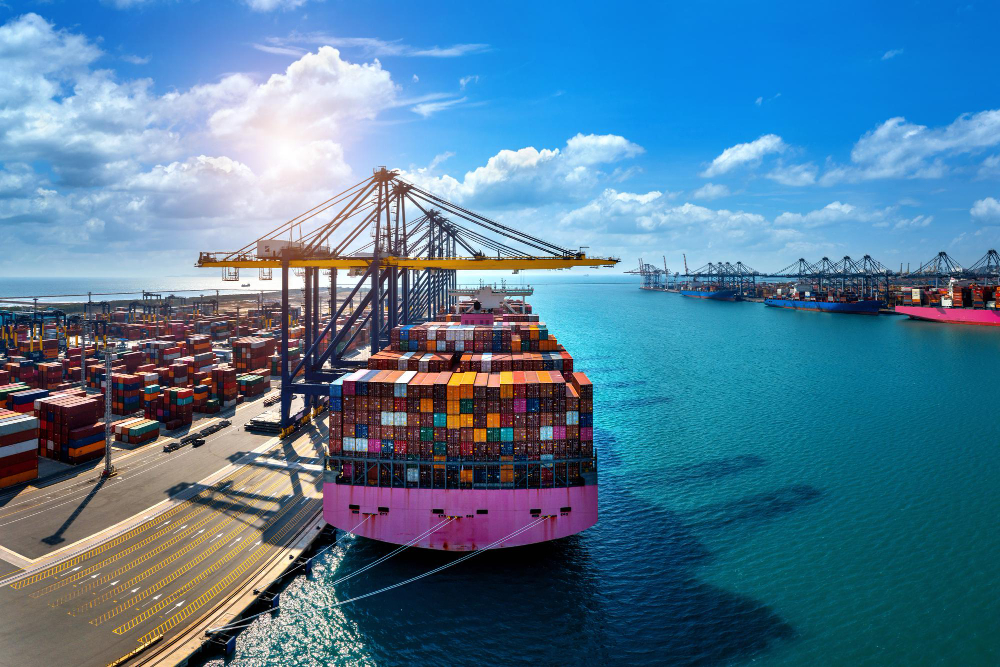Global sourcing has become an essential strategy for businesses looking to stay competitive in today’s globalized marketplace. In industries like logistics, transportation, and manufacturing, the ability to source materials, products, and services from international suppliers allows businesses to reduce costs, improve efficiency, and enhance the quality of their offerings. However, mastering global sourcing is not without its challenges. Navigating complex international supply chains, managing relationships with suppliers across borders, and ensuring compliance with local regulations all require careful planning and execution.
In this article, we will explore the key strategies for optimizing your supply chain through global sourcing and highlight how businesses can leverage international markets to drive success.
1. Understanding the Importance of Global Sourcing
Global sourcing involves the procurement of goods and services from international suppliers. For businesses in industries such as manufacturing, logistics, transportation, and retail, sourcing from international markets allows access to a wider range of products, materials, and services at competitive prices. This approach not only helps businesses reduce costs but also provides opportunities for innovation, improved quality, and diversification of suppliers.
Cost Reduction:
One of the most significant benefits of global sourcing is cost reduction. By sourcing from countries with lower production costs, businesses can reduce their overall expenses, leading to higher profit margins. Many businesses look to countries in Asia, such as China, India, and Vietnam, for manufacturing due to their low labor costs and established production capabilities. However, cost reduction is only one part of the equation—quality and reliability must also be taken into account.
Access to Innovation and Quality:
Global sourcing gives businesses access to new technologies, materials, and processes that may not be available in their domestic markets. Suppliers in different regions often have specialized expertise, which can lead to higher-quality products or more efficient manufacturing processes. For example, a company sourcing electronic components from Japan may benefit from the country’s advanced technology and manufacturing capabilities.
Supply Chain Diversification:
Relying on a single supplier or region can expose businesses to significant risks, such as supply chain disruptions due to political instability, natural disasters, or economic changes. Global sourcing allows businesses to diversify their supplier base, reducing the risks associated with relying on one region or supplier. This diversification ensures that businesses have multiple sources for critical materials or products, providing flexibility and resilience in the face of global challenges.
2. Developing a Global Sourcing Strategy
To successfully optimize your supply chain through global sourcing, it is essential to have a well-defined sourcing strategy. This strategy should consider factors such as cost, quality, lead time, supplier reliability, and risk management.
Conducting Market Research:
The first step in developing a global sourcing strategy is conducting thorough market research. This involves identifying potential suppliers, analyzing their capabilities, and understanding the economic, political, and regulatory environments of the countries you are sourcing from. For example, sourcing from China may offer cost advantages, but businesses must consider trade tariffs, intellectual property risks, and transportation lead times. By conducting detailed research, businesses can make informed decisions about which markets to source from.
Supplier Evaluation:
Not all suppliers are created equal. It is essential to evaluate potential suppliers based on their ability to meet your specific requirements. Key factors to consider include:
- Quality Standards: Ensure that suppliers can meet your quality standards and provide consistent, reliable products.
- Cost Competitiveness: Compare pricing among different suppliers while considering other factors such as lead time, transportation costs, and any additional fees.
- Reliability and Reputation: Check the supplier’s track record for on-time delivery, quality assurance, and customer satisfaction.
- Compliance with Regulations: Ensure that suppliers comply with both local and international regulations, including labor laws, environmental standards, and intellectual property protections.
Building Strong Supplier Relationships:
A successful global sourcing strategy depends on strong, collaborative relationships with suppliers. This involves more than just negotiating favorable terms—it’s about building trust, communication, and mutual respect. Establishing long-term partnerships with suppliers can lead to better pricing, improved quality control, and faster lead times. It also creates opportunities for innovation, as suppliers may offer insights into new materials, technologies, or processes that can benefit your business.
3. Managing Supply Chain Risks
Global sourcing comes with inherent risks, such as currency fluctuations, geopolitical instability, and logistical challenges. To optimize your supply chain, it’s critical to implement a robust risk management plan that anticipates potential issues and provides strategies for mitigating them.
Currency and Economic Risks:
Currency fluctuations can significantly impact the cost of goods sourced internationally. To manage this risk, businesses can hedge currency exposure by entering into forward contracts or using financial instruments that lock in exchange rates. Monitoring global economic conditions is also essential. Changes in trade policies, tariffs, or local regulations can affect the cost and availability of goods.
Geopolitical and Environmental Risks:
Political instability, trade disputes, and environmental factors can disrupt supply chains. For example, sourcing from a country that experiences frequent natural disasters or political unrest can lead to delays or shortages. To mitigate these risks, businesses should diversify their supplier base across multiple regions and maintain safety stock for critical components. Additionally, it is essential to monitor geopolitical developments and be prepared to shift sourcing strategies when necessary.
Logistical Challenges:
Logistics play a vital role in global sourcing. Shipping delays, port congestion, and customs clearance issues can disrupt supply chains and lead to increased costs. To optimize logistics, businesses should work closely with logistics providers to ensure efficient transportation routes and streamline customs processes. Implementing supply chain management software that provides real-time visibility into shipments can help businesses track goods in transit, manage delays, and adjust logistics strategies as needed.
Compliance and Regulatory Risks:
Global sourcing requires compliance with a complex web of international regulations, including trade laws, tariffs, customs regulations, and environmental standards. Failure to comply with these regulations can result in costly fines, delays, and reputational damage. It is essential to stay informed about the regulatory landscape in each sourcing region and work with legal experts to ensure compliance. This includes understanding import/export restrictions, labor laws, and intellectual property protections in the countries you are sourcing from.
4. Leveraging Technology in Global Sourcing
Technology is playing an increasingly important role in global sourcing, helping businesses improve visibility, reduce costs, and manage risks.
Supply Chain Management Software:
Supply chain management software enables businesses to track goods in real-time, monitor supplier performance, and manage inventory levels. This software provides a central platform where businesses can collaborate with suppliers, logistics providers, and customers, ensuring transparency and efficiency across the entire supply chain. Real-time data allows businesses to make informed decisions and respond quickly to changes in demand, supplier issues, or logistical delays.
Blockchain Technology:
Blockchain is transforming global supply chains by providing a secure, transparent, and tamper-proof record of transactions. With blockchain, businesses can track the movement of goods from supplier to customer, ensuring that products are authentic and have not been tampered with. This is particularly important for industries such as pharmaceuticals, electronics, and luxury goods, where counterfeit products can be a significant issue. Blockchain also streamlines customs processes by providing a clear, verifiable record of goods, reducing delays and improving compliance.
Artificial Intelligence (AI) and Machine Learning:
AI and machine learning are revolutionizing global sourcing by enabling predictive analytics and automation. AI-powered tools can analyze historical data to predict demand, identify supply chain bottlenecks, and recommend alternative sourcing strategies. Machine learning algorithms can also optimize supplier selection by analyzing supplier performance data and suggesting the best partners based on cost, quality, and reliability.
5. Measuring Success and Continuously Improving
Optimizing your supply chain through global sourcing is an ongoing process. To ensure long-term success, businesses must continually evaluate their sourcing strategy and make adjustments as needed.
Key Performance Indicators (KPIs):
It’s essential to track key performance indicators (KPIs) such as cost savings, lead times, supplier performance, and product quality. Regularly reviewing these metrics will help businesses identify areas for improvement and adjust their sourcing strategies to meet evolving market demands.
Continuous Improvement:
Supply chains are dynamic, and businesses must remain flexible to adapt to changes in global markets, regulations, and technologies. Regularly conducting supplier audits, investing in new technologies, and staying informed about industry trends will ensure that businesses continue to optimize their supply chain and maintain a competitive edge.
Global sourcing is a powerful strategy for optimizing supply chains and driving business success. By carefully selecting suppliers, managing risks, leveraging technology, and continuously improving, businesses can reduce costs, improve efficiency, and ensure supply chain resilience. As global markets continue to evolve, businesses that master global sourcing will be well-positioned to thrive in an increasingly competitive world.
At Todd’s Corporate Services, we specialize in helping businesses navigate the complexities of global sourcing. Our experts work with you to develop a sourcing strategy that aligns with your business goals, ensuring that you can capitalize on international opportunities while minimizing risks. Contact us today to learn how we can help you optimize your supply chain for success.



